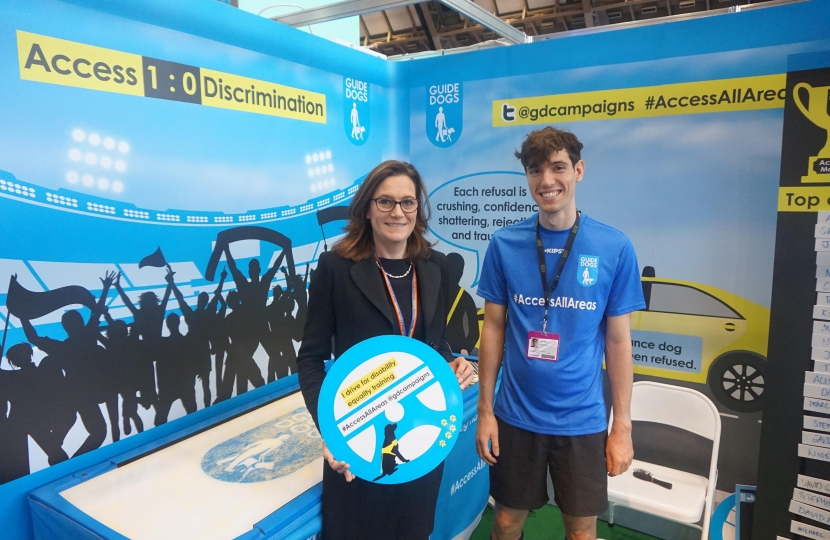
Rebecca Harris MP tested her taxi hailing skills this week at Conservative Party Conference in a football-themed game with Guide Dogs. While trying to get a taxi to take guide dog owner Jacqueline to her local football match, the MP for Castle Point heard about the real problems assistance dog owners face when being illegally refused by taxis and minicabs.
The Equality Act 2010 makes it illegal for a taxi or minicab driver to refuse to take an assistance dog or to charge extra for carrying it. However, Guide Dogs research found that 42% of assistance dog owners have been turned away by a taxi or minicab in a one-year period because of their dog. The research also uncovered that 38% of assistance dog owners have been asked to pay an extra fare for carrying their dog.
Guide Dogs’ are calling for all taxi and minicab drivers to undertake disability equality training so they understand the rights and needs of disabled passengers and feel confident to offer assistance.
Rebecca Harris MP said:
“I'm very pleased that Castle Point Borough Council already requires taxi and private hire vehicle drivers to take disability equality training as a condition of their licence. However it is still important to raise awareness that it is illegal for taxi drivers to refuse access to guide dog owners.”
Melanie Harris, Head of Licensing at Castle Point Borough Council
“All our drivers receive disability awareness and customer care training prior to being issued with a license to drive a Taxi and a refresher every three years on renewal of their licence. In the past 14 years I have only had one complaint about a driver who refused to take a guide dog. He turned out to be allergic to dogs and now carries an exemption card.”
James White, Senior Campaigns Manager at Guide Dogs, commented:
“Imagine you were turned away by a taxi driver for no reason. This happens to people living with sight loss with shocking regularity just because they are travelling with their guide dog. It’s not only illegal, it knocks people’s confidence and stops them doing the everyday things that most people take for granted – going to a café, meeting friends, going to the doctor’s or to their local football match.”